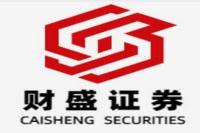Unlocking the Untapped Potential of China's First-to-Market Economy: A Deep Dive into SuNing's Strategic Play
Meta Description: Explore the burgeoning Chinese first-to-market (FTM) economy, its impact on retail, and how key players like SuNing are leveraging innovative strategies for success. Discover insights into FTM trends, consumer behavior, and the future of retail in China. #首发经济 #零售业 #苏宁易购 #中国经济 #消费升级
Wow! The Chinese retail landscape is exploding! Forget the tired old "me-too" strategies; the buzz is all about Shǒufā Jīngjì – the First-to-Market (FTM) economy. This isn't just about being first; it's about setting trends, capturing consumer imagination, and driving unprecedented growth. The central government's strong backing, coupled with the insatiable appetite of Chinese consumers for the new and exciting, has created a gold rush for innovative brands daring to launch their products and experiences first in the world's second-largest economy. This isn't some fleeting trend; it's a fundamental shift in how businesses operate and compete in China. This article delves into the heart of the FTM phenomenon, focusing on the strategic brilliance of SuNing, a retail giant cleverly navigating this exciting new frontier. Prepare to be amazed by their innovative approach, their commitment to consumer experience, and their crucial role in shaping China's economic future. We'll uncover the secrets behind their success, analyze the broader FTM landscape, and offer insights into what the future holds for this dynamic sector. Get ready for a rollercoaster ride through the fascinating world of Chinese retail innovation!
首发经济: The Driving Force Behind China's Retail Revolution
The FTM economy, or Shǒufā Jīngjì, is more than just a catchy phrase; it represents a transformative shift in China's consumer market. No longer content with second-best, Chinese consumers are increasingly demanding the latest and greatest, creating a powerful incentive for brands to prioritize first-to-market releases. This isn't simply about launching a product in China before anyone else; it's about crafting a unique, immersive brand experience that resonates deeply with the sophisticated and discerning Chinese consumer. It's about building anticipation, generating buzz, and establishing a lasting brand loyalty.
The central government's explicit endorsement of FTM initiatives further underscores its importance. Statements from the Central Economic Work Conference emphasizing the development of the FTM economy, along with supportive policies from the Ministry of Commerce and other key agencies, have created a climate of unprecedented opportunity. Consequently, first-tier cities like Beijing, Shanghai, and Shenzhen are leading the charge, offering generous incentives to attract brands and foster innovation.
SuNing 易购: A Trailblazer in the FTM Arena
SuNing 易购, a prominent player in China's retail sector, has expertly capitalized on the FTM boom. Their strategy hinges on a three-pronged approach: opening new stores ("Kāi Xīn Diàn"), introducing new products ("Tuī Xīn Pǐn"), and innovating store formats ("Chuàng Xīn Yètài"). This isn't just about adding more stores; it's about creating immersive, engaging shopping experiences that redefine what it means to shop for electronics and home appliances.
Their flagship SuNing 易购 Pro stores are prime examples of this approach. These aren't your grandpappy's electronics stores! These massive, technologically advanced retail spaces (some exceeding 15,000 square meters!) offer a fully integrated shopping experience, blending cutting-edge technology, personalized service, and a curated selection of top-tier brands and products. The recent simultaneous openings of new Pro stores in Nanning and Shenyang exemplifies SuNing's aggressive expansion and commitment to bringing the FTM experience to consumers across China.
SuNing's commitment to FTM isn't limited to physical stores. They actively leverage online channels to amplify the buzz around new product launches and create a seamless omnichannel experience. This integrated approach ensures that consumers can engage with SuNing's FTM offerings regardless of their preferred shopping method, maximizing reach and impact.
SuNing's Strategic Pillars: A Detailed Look
| Pillar | Description | Example | Impact |
|--------------------|-----------------------------------------------------------------------------------------|----------------------------------------------------------------------------|-----------------------------------------------------------------------------|
| New Stores (开新店) | Aggressive expansion of physical retail footprint, focusing on flagship Pro and Max stores. | Over 300 new and upgraded stores in 2023, including numerous Pro and Max stores. | Enhanced brand visibility, increased accessibility, and improved customer experience. |
| New Products (推新品) | Introduction of cutting-edge products and technologies, often before competitors. | Thousands of SKUs across various categories, including leading 3C and home appliance brands. | Strong consumer appeal, market leadership, and enhanced brand image. |
| New Formats (创新业态) | Development of innovative store layouts and customer experiences. | Interactive displays, immersive showrooms (like kitchen and living room simulations), and integrated services (home remodeling). | Differentiation from competitors, unique shopping experience, and improved customer loyalty. |
The Future of FTM in China
The FTM economy is not only about technological advancement; it's about understanding and catering to evolving consumer needs. This requires a deep understanding of Chinese consumer preferences and behaviors, a willingness to adapt and innovate, and a commitment to providing exceptional customer service.
The future of FTM in China is bright indeed. As brands and retailers continue to innovate, we can expect to see even more sophisticated and immersive FTM experiences. The emphasis on personalization, omnichannel integration, and creating unique brand stories will be paramount. This shift will necessitate a talent pool capable of understanding the nuances of the Chinese market, and the flexibility to adapt to ever-shifting consumer demands.
Furthermore, the rise of social commerce will play a crucial role in amplifying the visibility and impact of FTM initiatives. Brands must effectively leverage social media platforms to generate buzz, build anticipation, and connect directly with consumers.
Frequently Asked Questions (FAQs)
Here are some frequently asked questions about the FTM economy in China:
Q1: What are the key benefits of adopting a FTM strategy in China?
A1: FTM strategies in China offer several advantages: First-mover advantage, establishing brand leadership, capturing early adopter consumers, generating significant buzz and media attention, and commanding premium pricing.
Q2: What are the biggest challenges faced by companies pursuing FTM strategies in China?
A2: Challenges include high initial investment costs, navigating complex regulatory landscapes, managing supply chain complexities, and adapting to rapidly changing consumer preferences.
Q3: How important is understanding Chinese consumer behavior for FTM success?
A3: Crucial! Understanding cultural nuances, consumer preferences, and the unique characteristics of the Chinese market is essential for success. Failing to do so can lead to costly mistakes and market failure.
Q4: What role does technology play in the FTM economy in China?
A4: Technology is central! From e-commerce and social media marketing to AI-powered personalization and advanced supply chain management, technology is a key driver of FTM success.
Q5: What are some examples of successful FTM campaigns in China?
A5: Numerous brands are succeeding, but SuNing's multi-pronged approach incorporating new stores, product launches, and innovative formats stands out. Other successful strategies leverage social media marketing and influencer collaborations for maximum impact.
Q6: What does the future hold for the FTM economy in China?
A6: Continued growth is expected, driven by increasing consumer demand, supportive government policies, and technological innovation. The focus will increasingly shift towards personalization, omnichannel integration, and creating compelling brand stories.
Conclusion
The FTM economy represents a dynamic and transformative shift in China's retail landscape. Companies like SuNing 易购 are demonstrating the power of innovation, strategic planning, and a deep understanding of the Chinese consumer to capture the immense opportunities presented by this burgeoning market. As the Chinese consumer continues to demand the latest and greatest, the FTM economy will only continue to gain momentum, shaping the future of retail in China and beyond. This is a story that's only just beginning, and it's one worth watching closely.



